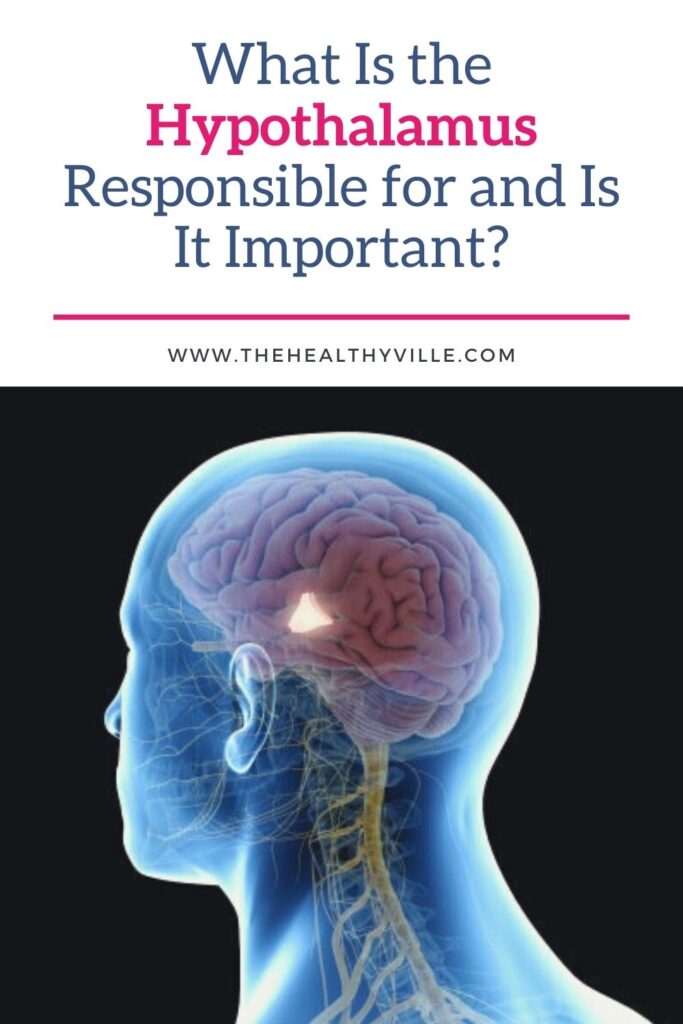What is the hypothalamus responsible for? We’ve learned about it in school but do you know how important it is for your body? Find out!
The hypothalamus is a key organ in the endocrine system. It has directing functions over the rest of the glands and regulates many normal body cycles, such as sleep or menstruation in women.
The hypothalamus is a small endocrine organ found in the brain. Despite how little we know about it, it is a vitally important part that performs many functions.
This gland is capable of regulating most of the metabolic processes that occur in the human body, in addition to the cycles that determine our routine. Sleep, hunger, body temperature and even social relationships are conditioned by the hypothalamus.
What is and where is the hypothalamus?
The hypothalamus is an endocrine organ. The endocrine system is a set of organs and glands in the body that work through the secretion of substances called hormones.
The hypothalamus, despite being a very small organ, is in charge of controlling many of the other glands. That is to say, that it fulfills a certain task of conducting the rest of the orchestras.
It is located in the center of the brain and, although it is almost the size of a pea, it contains an enormous number and variety of neurons.
The hypothalamus is divided into parts, which we call nuclei. Each of these nuclei is responsible for manufacturing certain types of hormones. Although all nuclei are equally important, some more relevant examples are the arcuate nucleus and the mammillary nucleus.
What is the hypothalamus responsible for?
The functions of the hypothalamus are many and very important for the proper functioning of the body. In particular, homeostasis, that is, the equilibrium state of cells with the internal environment and the environment that surrounds us, depends on this organ.
Some of these functions are as follows:
Regulation of body temperature: the hypothalamus regulates body temperature through sweat and by controlling the respiratory rate. This causes the body to lose heat when it is generating too much of it.
Control of appetite and thirst: the pituitary gland releases hormones that control factors such as blood sugar and fatty acids. In addition, there are substances such as antidiuretic hormone that promote or inhibit thirst.
Modification of the sleep-wake cycle: the hypothalamus receives information from, for example, the retina, which gives signals about the amount of ambient light. When the amount of light is low, melatonin is released to stimulate and induce sleep.
Mating: through the hormone oxytocin, which plays a role in paternal behavior or in the dilation of the cervix during childbirth, the hypothalamus intervenes in the cycles related to fertility, the maintenance of pregnancy and breastfeeding. By controlling sex hormones, it modifies the menstrual cycle and sperm production.
How does it carry out its functions?
The hypothalamus, in its different nuclei, manufactures and secretes hormones, as well as inhibitory and activating factors. These substances travel through the blood to connect with the pituitary.
The pituitary is another endocrine organ that is located somewhat lower than the hypothalamus. It is responsible for manufacturing more hormones and extending the factors and signals of the hypothalamus to the rest of the body. Thus, these will reach their target organs, which will be the ones that ultimately execute the actions.
The conductor of the orchestra is the hypothalamus
The hypothalamus is the main endocrine organ, responsible for regulating the functions of the rest of the glands in the body. Its proper functioning is necessary for the human body to act normally.
Therefore, diseases or accidents that affect the hypothalamus will make it not work as it should. This alters the regulation of many aspects of the body. That is why we say that he is a conductor, since he has the ability to balance the general hormonal movement.
In case of noticing any symptoms of any of the functions that the hypothalamus carries out, we must go to the specialist, so that he is the one who studies what happens and establishes the diagnosis. The best option is an endocrinologist, who is a doctor who specializes in hormones.
Don’t forget to SHARE what is the hypothalamus responsible for with your friends and family on your social networks!

